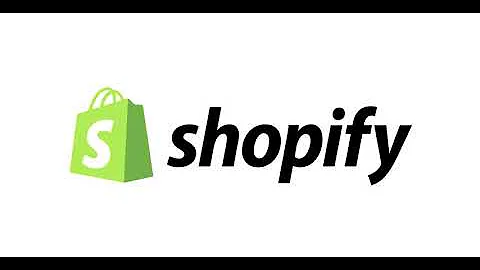Shopify vs Ecwid: Key Pros and Cons
Table of Contents
- Introduction
- Shopify vs Ecwid: A Brief History
- 5 Key Reasons to Use Shopify over Ecwid
-
- Shopify is better for building a standalone online store
-
- Shopify allows an unlimited number of products
-
- Shopify is the better choice for dropshipping
-
- Shopify's multi-currency features are stronger
-
- Shopify offers more robust SEO tools and features
- When Ecwid Might Be the Better Choice
-
- Ecwid is available for free
-
- Ecwid can turn any website into a fully-featured ecommerce site
-
- Ecwid doesn't charge transaction fees when using a third-party payment gateway
-
- Ecwid doesn't have product option limits
-
- Ecwid makes it easier to capture custom data for purchases
- Conclusion
- FAQs
Shopify vs Ecwid: Which Ecommerce Solution is Right for You?
When it comes to choosing an ecommerce platform, it's important to weigh the pros and cons of different options. In this article, we will compare two popular ecommerce solutions: Shopify and Ecwid. We'll delve into their features, pricing, and overall suitability for various business needs. Whether you're starting a new online store or considering a platform switch, this guide will help you make an informed decision.
Introduction
Shopify and Ecwid are both top contenders in the ecommerce market, offering unique features and functionalities. While both platforms cater to merchants of all sizes, they have distinct differences that set them apart. By exploring their strengths and weaknesses, you can determine which platform aligns better with your business goals.
Shopify vs Ecwid: A Brief History
Before delving into the details, let's take a quick look at the history of Shopify and Ecwid. Ecwid was initially designed as a code snippet that enabled selling products on an existing website. In recent years, Ecwid expanded its capabilities to allow users to create standalone online stores. On the other hand, Shopify was built from the ground up as a comprehensive ecommerce platform for creating sophisticated online stores. Now that we understand their background, let's dive into the key factors that differentiate Shopify and Ecwid.
5 Key Reasons to Use Shopify over Ecwid
1. Shopify is better for building a standalone online store
If your goal is to build a standalone online store on your chosen domain, Shopify outshines Ecwid. While Ecwid offers an "instant site" feature to create simple one-page websites, they lack professional blogging tools. In the age of content marketing, having a robust blogging platform is crucial for driving engagement and attracting new customers. Shopify excels in this regard, providing highly sophisticated online store features, multiple pages, a blog, and advanced ecommerce functionalities.
2. Shopify allows an unlimited number of products
When it comes to product limits, Shopify is much more generous than Ecwid. While Ecwid imposes a cap on the number of products you can sell, even on their most expensive plan, Shopify allows you to sell an unlimited number of products on any plan. Whether you have a small inventory or a vast product range, Shopify caters to your needs.
3. Shopify is the better choice for dropshipping
Dropshipping, a popular method of selling products without the need for storing or shipping inventory, is made easier with Shopify. The platform offers a wide range of excellent dropshipping apps and integrations to streamline your operations. While Ecwid also supports dropshipping, their options are considerably more limited. If you're looking to embrace the dropshipping model, Shopify provides a more seamless experience.
4. Shopify's multi-currency features are stronger
Selling products in multiple currencies can be a complex task, but Shopify simplifies the process with its robust multi-currency features. With Shopify Markets, you can define the regions you want to operate in and the currencies to use, making international selling a breeze. While Ecwid allows you to display product prices in local currencies, it lacks the capability for checkout in those currencies. This limitation hampers conversion rates and may impact your bottom line.
5. Shopify offers more robust SEO tools and features
For businesses competing in a competitive niche, having strong SEO tools and features is essential. While Ecwid provides useful SEO features, it falls short in some areas. With Shopify, you gain full control over nearly every SEO component, including URL format, redirects, meta tags, and more. This level of control is paramount for optimizing your online store and ensuring maximum visibility in search engine results.
When Ecwid Might Be the Better Choice
While Shopify offers numerous advantages, Ecwid also has compelling reasons that might make it the right choice for your ecommerce venture.
1. Ecwid is available for free
One significant advantage of Ecwid is their free plan. While Shopify offers a free trial, Ecwid provides a fully functional free plan that allows you to sell up to ten products. This is an excellent option for those starting with a small product range or wanting to test the platform before committing to a paid plan.
2. Ecwid can turn any website into a fully-featured ecommerce site
If you already have a website and want to add ecommerce functionality, Ecwid shines in this area. By installing Ecwid on your site, you can leverage product search, multi-currency features, category filtering, and other ecommerce functionalities that enhance the user experience. While Shopify offers Buy Buttons to display products on another site, Ecwid takes it to the next level by seamlessly integrating with any website.
3. Ecwid doesn't charge transaction fees when using a third-party payment gateway
Unlike Shopify, Ecwid doesn't charge transaction fees when you process credit card transactions through a third-party payment gateway. This can be a significant cost-saving advantage, especially for businesses with high transaction volumes or prefer specific payment gateways.
4. Ecwid doesn't have product option limits
Shopify limits you to just three product options for the items you're selling. Although apps exist to remove this limitation, they add extra costs and configuration time. On the other hand, Ecwid allows you to work with as many product options as you need, providing flexibility to customize and offer a broader range of choices to your customers.
5. Ecwid makes it easier to capture custom data for purchases
Collecting custom data from customers during the purchase process can be valuable, especially for personalized products or specific requirements. While Shopify requires additional code or paid apps to capture this information, Ecwid simplifies the process. With Ecwid, visitors can easily add text fields or upload files that provide the necessary assets for delivering a customized product.
Conclusion
In this comprehensive comparison of Shopify and Ecwid, we've highlighted their key strengths and weaknesses. Shopify excels in building standalone online stores, offering unlimited product options, dropshipping support, multi-currency features, and robust SEO tools. On the other hand, Ecwid stands out for its free plan, ease of integration with existing websites, absence of transaction fees for third-party payment gateways, unlimited product options, and simplified capture of custom purchase data. Consider your business needs, goals, and budget when deciding between the two platforms.
FAQs
Q: How much does Shopify cost?
A: Shopify offers various pricing plans, starting from $29 per month for the Basic plan. The pricing increases with more advanced features and additional services such as Shopify Plus for enterprise-level businesses.
Q: Does Ecwid support mobile commerce?
A: Yes, Ecwid provides mobile-responsive storefronts, allowing your customers to have a seamless shopping experience on their mobile devices.
Q: Can I use both Shopify and Ecwid together?
A: While it is technically possible to use both platforms simultaneously, it may lead to unnecessary complexity and duplicate efforts. It's generally recommended to choose one platform that best meets your needs.
Q: Does Shopify provide customer support?
A: Yes, Shopify offers 24/7 customer support through various channels, including live chat, phone, and email.
Q: Can I switch from Ecwid to Shopify without losing data?
A: Yes, both Shopify and Ecwid provide migration tools and services to facilitate a smooth transition from one platform to another. You can import products, orders, customer data, and other relevant information.
Q: Can I sell digital products on Shopify and Ecwid?
A: Yes, both platforms support the sale of digital products. You can offer digital downloads, access to online courses, software licenses, and more on both Shopify and Ecwid.
Q: Can I use my own domain with Ecwid?
A: Yes, Ecwid allows you to use your custom domain for your online store. This helps maintain your brand identity and creates a more professional impression for your customers.
Q: Can I sell internationally with Shopify and Ecwid?
A: Yes, both Shopify and Ecwid support international selling. They offer multi-currency features and provide tools to define the regions you want to operate in, making it easier to cater to a global customer base.
Q: Are there any limits on the number of products I can sell on Shopify?
A: No, there are no restrictions on the number of products you can sell on Shopify. Whether you have a small inventory or an extensive product range, Shopify accommodates your needs.


















